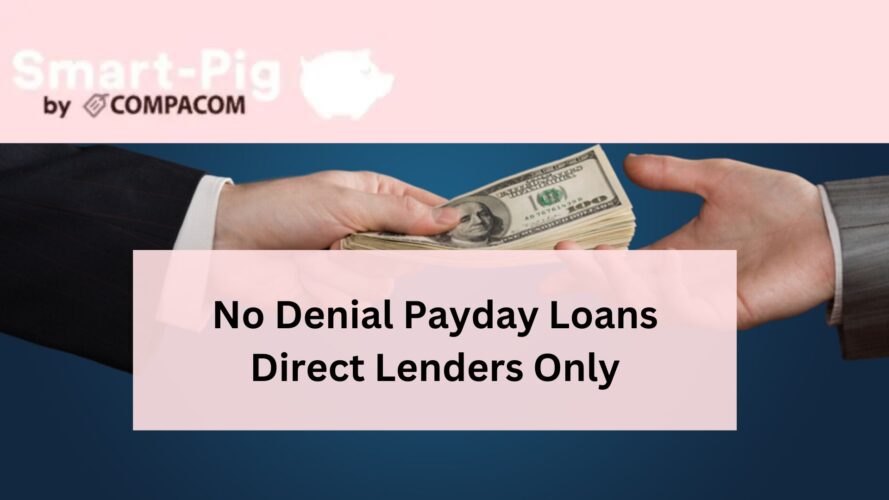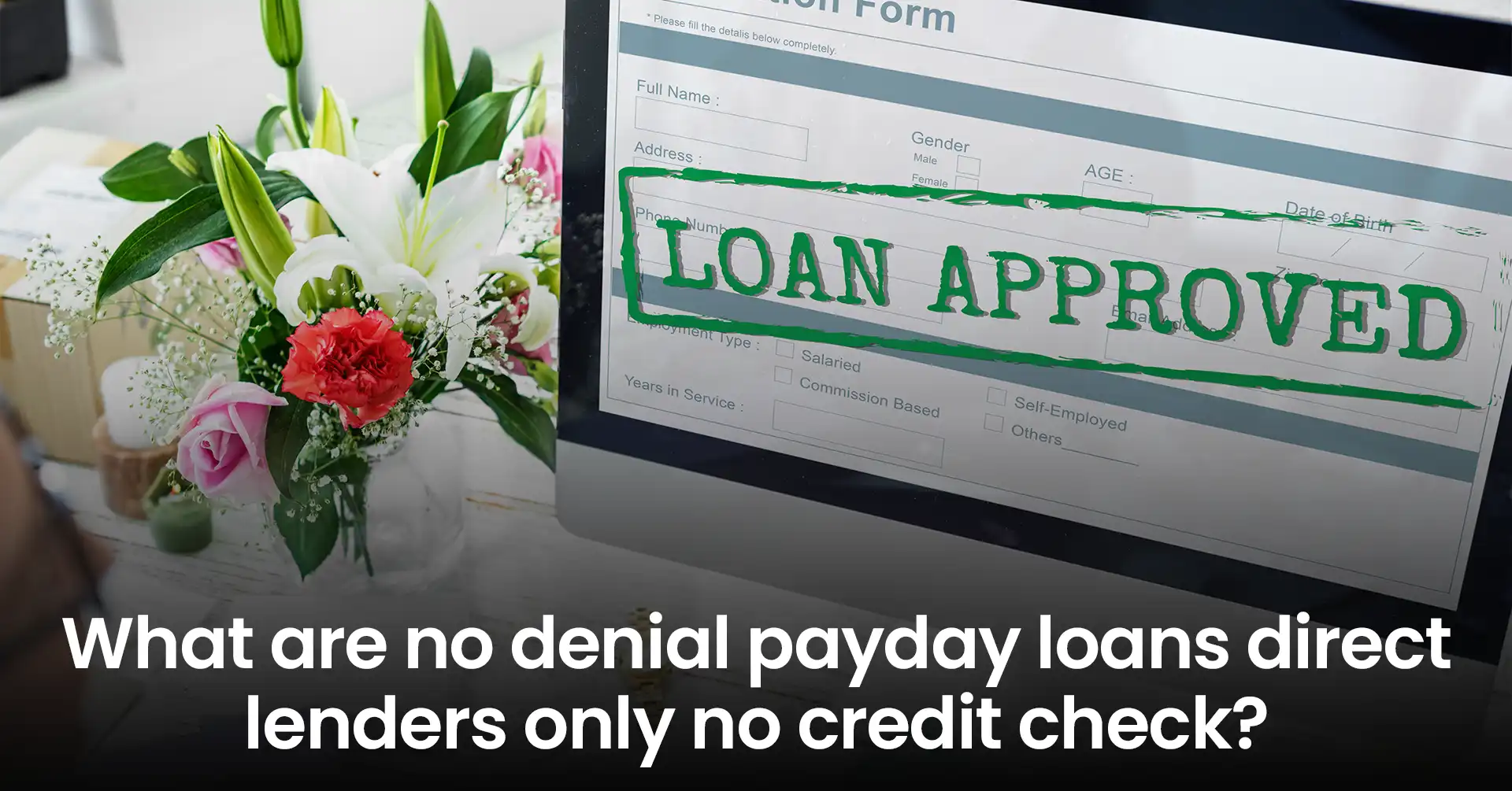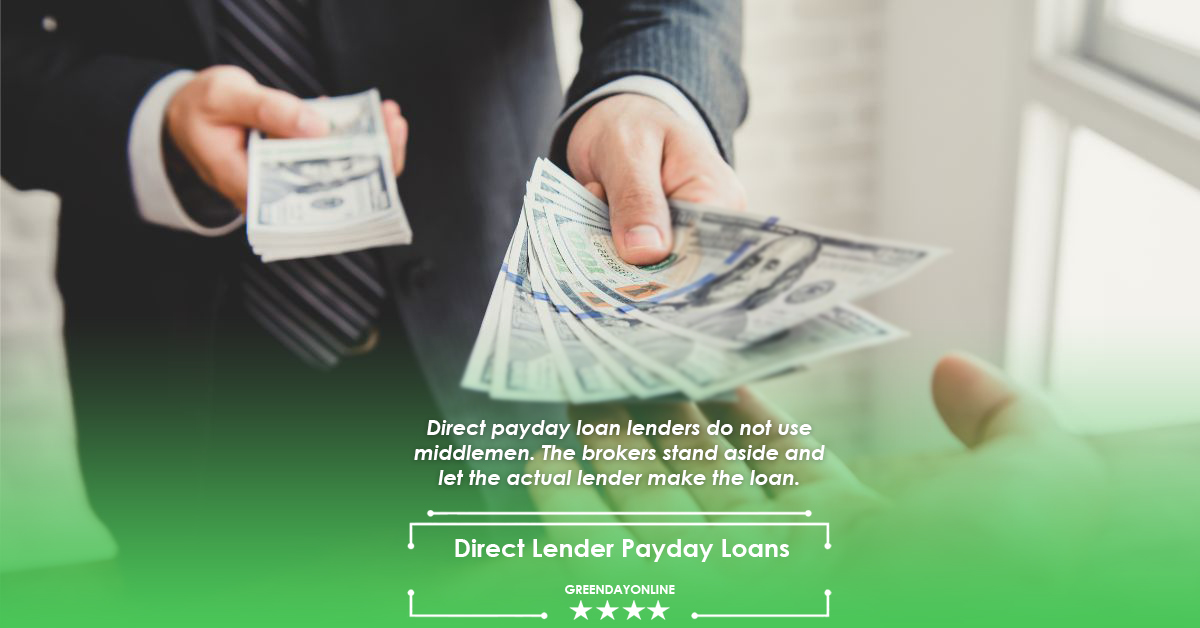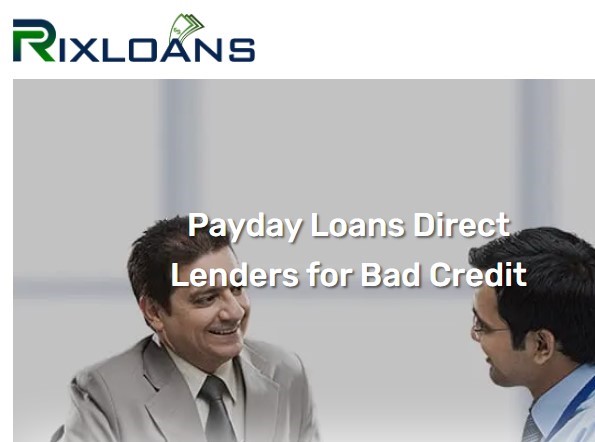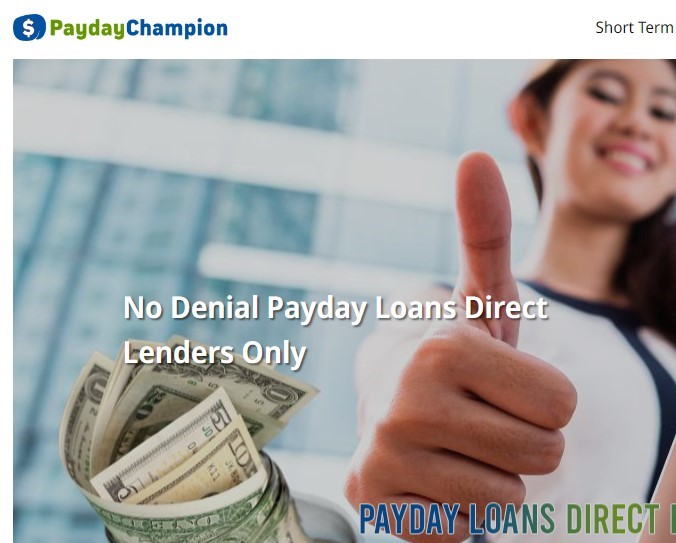No Denial Payday Loans Direct Lenders Only

The proliferation of online payday loan providers promising "no denial" options and direct lending is raising concerns among consumer advocacy groups and financial regulators. These lenders, often operating outside traditional regulatory frameworks, target individuals with poor credit scores or limited access to conventional financial services.
This article examines the rise of these "no denial" payday loans, the potential risks they pose to borrowers, and the regulatory landscape surrounding this increasingly prevalent segment of the short-term lending market.
What are "No Denial" Payday Loans?
“No denial” payday loans, as marketed, suggest guaranteed approval regardless of an applicant's credit history. These loans are typically offered online by direct lenders, meaning they claim to fund the loan directly rather than acting as a broker connecting borrowers with other lenders. This direct lending model often implies faster processing times and, potentially, fewer intermediaries.
However, the "no denial" claim can be misleading. While approval rates might be higher than traditional lenders, some form of assessment still occurs, even if it's simply verifying income or banking information.
The Allure and the Risks
The primary appeal of "no denial" payday loans lies in their accessibility. Individuals facing urgent financial needs, such as unexpected bills or emergency repairs, may see these loans as a lifeline when traditional lenders turn them down.
However, this accessibility comes at a significant cost. Payday loans, in general, are known for their high interest rates and short repayment terms. These rates can translate into an Annual Percentage Rate (APR) of several hundred percent, trapping borrowers in a cycle of debt.
Moreover, the "no denial" promise can lure vulnerable individuals into borrowing more than they can afford to repay. The ease of access can obscure the long-term financial consequences.
The Regulatory Landscape
The regulation of payday loans varies significantly by state in the United States. Some states have capped interest rates or effectively banned payday lending altogether, while others have more lenient regulations.
The rise of online lenders, many of whom are based offshore or operate across state lines, presents a challenge for regulators. It becomes more difficult to enforce consumer protection laws when lenders are not physically located within a state's jurisdiction.
The Consumer Financial Protection Bureau (CFPB) has taken steps to regulate the payday lending industry at the federal level. However, these regulations have faced challenges and revisions, leaving the regulatory landscape somewhat uncertain.
Concerns from Consumer Advocacy Groups
Consumer advocacy groups, such as the National Consumer Law Center (NCLC), have consistently warned against the dangers of payday loans. They argue that these loans are predatory and disproportionately harm low-income communities and communities of color.
"Payday loans are designed to trap borrowers in debt. The high interest rates and short repayment terms make it nearly impossible for borrowers to repay the loan without re-borrowing,"stated a representative from the NCLC in a recent report.
These groups advocate for stronger regulations, including rate caps and more stringent underwriting standards, to protect consumers from predatory lending practices. They also emphasize the importance of financial literacy education to help individuals make informed decisions about borrowing.
The Impact on Borrowers and Society
The reliance on "no denial" payday loans can have severe consequences for borrowers. Debt cycles, bank overdraft fees, and damaged credit scores are common outcomes.
In some cases, borrowers may resort to taking out additional payday loans to repay existing debts, further exacerbating their financial problems. This cycle of debt can lead to stress, anxiety, and even bankruptcy.
Beyond individual borrowers, the prevalence of predatory lending can have broader societal impacts. It can contribute to income inequality and hinder economic mobility, particularly in vulnerable communities.
Finding Alternatives
For individuals facing financial emergencies, exploring alternatives to "no denial" payday loans is crucial. These alternatives may include:
- Seeking assistance from local charities or non-profit organizations.
- Negotiating payment plans with creditors.
- Exploring credit union loans or other small-dollar lending options.
- Seeking financial counseling to develop a budget and manage debt.
The availability and suitability of these alternatives will vary depending on individual circumstances, but they often offer more sustainable solutions than resorting to high-cost payday loans.
In conclusion, while "no denial" payday loans offered by direct lenders may seem like a quick fix for financial emergencies, they carry significant risks. Borrowers should carefully weigh the costs and benefits before resorting to these loans and explore alternative options whenever possible. A more robust regulatory environment and increased financial literacy are essential to protecting consumers from predatory lending practices.


